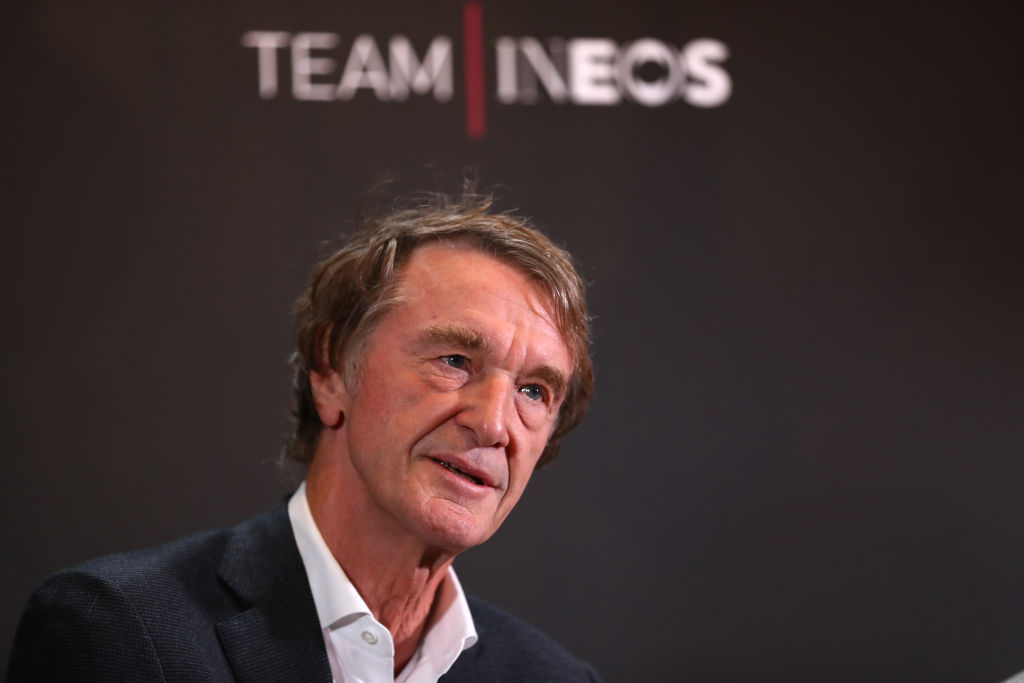Ineos Grenadiers team owner Jim Ratcliffe has called for professional cyclings’ governing bodies to take “real action” to improve safety after the Itzulia Basque Country high-speed crash and other race incidents that have left a number of riders out of action and Tour de France winner Jonas Vingegaard reportedly still in hospital in Spain.
Ineos Grenadiers have been one of the driving forces in the creation of SafeR (SafeRoadcycling), the independent entity created and funded by the sport’s stakeholders to improve race, and Ratcliffe is the first team owner to publish an open letter about safety.
Cyclingnews has been told there is real anger in some parts of the sport that politics and team rivalries are slowing the process of improving safety.
Jaap Van Hulten has only recently been appointed the CEO of SafeR, while Michael Rogers recently left the UCI after playing a key role in the creation of SafeR. Van Hulten has left his role as Chief Operations Officer at Visma-Lease a Bike team to become the CEO of SafeR but will only start to work on May 1.
Cyclingnews understands that SafeR has started to hold weekly meetings and apparently discussed the Itzulia Basque Country crash on Thursday but has still to formally begin the huge task of improving race safety, which is expected to begin for the 2025 season.
Ratcliffe’s open letter calls for more action without specifying what should be done.
“In Formula 1, when Ayrton Senna had his fatal crash 30 years ago in Italy, the governing body set out to transform the safety regulations of one of the world’s most dangerous sports and significantly reduced injuries as a result. This contrasts starkly with cycling. As recently as last week, we had yet another horrific crash involving three of the world’s top cyclists,” Ratcliffe said in an open letter published by the Ineos Grenadiers teams.
The UCI and other stakeholders responsible for race safety have still to respond to Ratcliffe’s call for action.
Ratcliffe accepted that professional athletes are “always going to push things” and recalled how Chirs Froome and Egan Bernal suffered major injuries while respectively studying a time trial course at the 2019 Critérium du Dauphiné and in training in Colombia.
“Cyclists are always going to push things to the limit as they are elite sportsmen and that is why action is so important,” Ratcliffe wrote, highlighting the role SafeR can make.
“In June, the UCI announced the formation of SafeR, a specialist entity to oversee all aspects of cycling safety. For the first time, the sport will have a dedicated safety body whose sole concern is to make the sport safer, reducing the risks to riders and spectators whilst losing none of the thrill of racing.
“This is what Formula 1 has done so well over the past 30 years and I would hope that we will now see the same in cycling.
“I applaud the UCI for taking the issues on board and agreeing to support the establishment of SafeR. We now need to see real action to ensure the safety of the sport.”
Before last weekend’s Paris-Roubaix races, UCI President David Lappartient called on everyone in the sport to come together for the good of the sport.
“Safety is clearly the most important topic for the sport at the moment, for the UCI and for all the different stakeholders,” Lappartient told Cyclingnews, understanding the sport has to act.
“I’ve seen all the debates about equipment, new technology, earpieces, etc. There’s still a lot to understand. But it’s time to act and improve race safety.
“We need to have a lot of small safety gains. That’s what the riders want and that’s what we’ll work on, we all have to work together on this.”


















